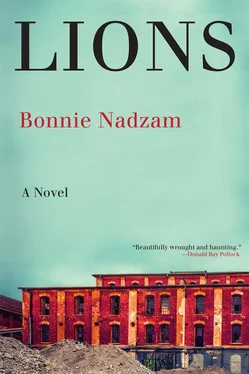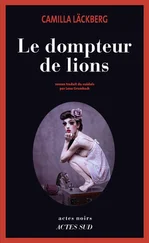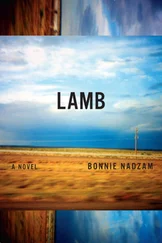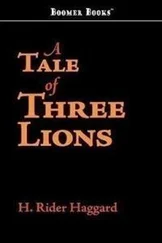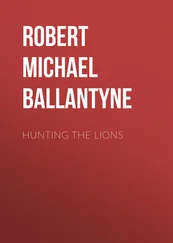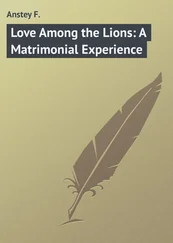When the old schoolhouse materializes out of nothing on the side of the road, it’s as clean and white as the day it was built, the bright bell shining in its square-shaped wooden tower, and passersby from behind the windshields of their Pontiacs and Hondas, driving from Chicago to LA or Omaha to Reno, have seen the poor woman right beside it in a long brown- and rose-colored dress, her thick, curling red hair blowing as if she, alone, were on fire in the midst of a terrible storm.
Such tales of children and their schoolteachers or bus drivers caught in sudden snowstorms on the plain are all too common; some still say that David Wayne Miller is behind the death of every one of them.
“Because every wrong man,” May told Leigh every time, while the girl watched the shadows of the cottonwood bend and lengthen on the wall behind her mother’s head, “is the same wrong man.”
First day of August. A light, circling wind blew the heat around the county like fever breath, lifting the dust from the fallow fields and wheeling around and dropping it again in a thin brown cloud over the surface of the town. Over the last couple weeks on her way to and from the diner Leigh watched the yarrow and Queen Anne’s lace cracking, splitting, and breaking into a powder that fell apart and slowly resolved itself into the pale dirt. “A coalescence,” John Walker had once told her, drawing his finger along the seam of a weld on the chicken coop.
In every direction mirages of false rivers and lakes, the scant trees hovering upside down in the buckled glare. If the world were any one thing it was light — refracted, diffused, reflected, and smashed and split apart by metal roofing and run-down cars, their once bright green and yellow and red paint now muted and spotted with rust, their windows broken, their plaintive faces lopsided on a cracked chassis or missing wheels. It was so much light you could scarcely see, and Leigh’s eyes were squinted all the time, and her head ached, and she longed for night. She imagined a house by the ocean. A house on a river. A house on a lake. Cool rooms and shady gardens and a green twilight. She imagined rainy nights. Tiered water fountains elaborate as wedding cakes.
When Gordon was home he was in the shop dressed in wool and sweating, repairing a broken johnny bar, cleaning the tools and machines, standing in the open shop door holding cold black coffee in the ceramic blue mug he’d always used, speckled like an egg, John’s solid brown mug still in its place beside the old radio.
When he was in the house he was heating up canned spaghetti or baked beans for himself and Georgianna, urging her to dress, sweeping the floors and washing sheets and towels. Or he was sitting in his father’s chair, rereading his old paperbacks, small and familiar in his hands, dried glue cracking at their seams, yellowed pages soft as felt.
Twice Leigh brought sandwiches from the Lucy Graves and they walked across the bony ground to the factory where they ate quietly, side by side, not touching, commenting on the heat, or the swallows nesting in mud huts along the rafters. The floor was dirty, the bricks were broken. Leigh couldn’t remember what had ever seemed magical in the old ruin. Most times she asked him, Gordon didn’t want to go.
One morning, Gordon in the shop and Leigh at the diner, the man from Denver whose family owned a string of tire and oil change shops across the state finally came out to make, he said, some kind of assessment of the garage, the town’s only open business other than the Gas & Grocer, diner, bar, and Marybeth’s. His name was Alan Ranger and his eyes were blue as enamel, his hair bright as dry ricks of hay, and he wore a blond Fu Manchu Leigh could not look at without imagining kissing his face. It surprised her, and made her own face hot.
“What are you doing in this town?” he asked when Leigh set down his club sandwich and french fries.
“Packing.”
“Good answer.” He looked at the sandwich doubtfully. “What are those?”
“Decorative toothpicks.”
“I didn’t order those.”
“Would you like me to remove them?”
“Please.”
“You want anything other than water?”
“You serve beer?”
“Across the street. Boyd’ll serve ’em to go.”
“Now that,” he said, “is what I call useful information.”
“She’s got a boyfriend,” May said, coming up behind Leigh with a tray propped on her hand.
“I do not.”
“Girl says she don’t,” Alan Ranger said, and popped a french fry into his mouth.
“Well,” May said, “she do.” She crossed the diner and set down three slices of pie and ice cream at a far table. He locked eyes with Leigh. “Whoever Mr. Nobody is he ought to know better than to leave her out alone among the wolves.”
May circled back to the range. “That,” she said, “I’ll give you. Leigh. Take this order over to Georgie.”
Leigh opened the box and peered in at the sliced ham with hot cherry jam and green beans. “She’s got a ton of food.”
“Take it or you’re fired.”
When Leigh left Georgianna’s kitchen, there he was, parked in front of the Walkers’ house. He drove a forest green pickup, his golden arm hanging out the window. He smiled, and she leaned in at the rolled-down window. There was a six-pack of cold brown bottles in the passenger seat.
“Your mama doesn’t like the competition,” he said. “Bet she used to be the prettiest one here.”
“Please.”
He nodded at the six-pack. “Know a good place to go have a cold beer?”
They walked out across the empty fields behind the Walker and Ransom houses to the factory. In the distance, west of the road, the ragged field, hard as tack and scabbed with weeds. Leigh crawled beneath the chain-link and Alan Ranger followed. She laughed at him.
“Why you laughing at me?”
“You look funny,” she said, “grown man shimmying under a fence.”
“Well,” he brushed off the legs of his jeans. “I came in pursuit of a very particular thing.”
They sat in the sun with the warm bricks against their backs. He opened two of the bottles and raised his. Leigh raised her own.
“Born and raised?” he asked, scanning the horizon.
“Yep.”
“Ever been out?”
“Nope.”
“Your guy never took you out?”
“Not out of here.”
“What are you waiting on? Hell, girl. You won’t be this pretty forever. Want me to take you back to Denver with me?”
“Come on.”
“It’s cooler there.”
“Liar.”
“No, no” he said. “Nice restaurants. Nice neighborhoods. Nice little house, right? Big kitchen. Big bedroom. Buy you pretty dresses, take you to church on Sundays. Make a couple babies.”
She rolled her eyes but smiled.
“I’ll give you my number. You have a car?”
“I might have one I can use.”
“Come out to Denver.”
“I’d come out to Denver.”
“I’ll show you around, girl.”
“Yeah?”
“Hell, yeah. Ought to share yourself with the world. Instead of hiding away with this boyfriend you say you don’t have.”
She drank two beers and he drank four. They lined up the empties and tossed pebbles toward their round mouths. A stray brown and white barn cat with a milky white ghost eye watched Alan from a distance. She could see the sun glinting on the metal of the Quonset hut, and knew Gordon was in there welding. He had his head down working. It was what he did.
“He’s a fool,” Alan told her.
“Prettiest girl I’ve seen across this whole state,” he told her.
“You should move to California. That’s where a girl like you belongs,” he told her. “Long white dress on the beach. Hair piled up on your head like this?” He reached over and put his hands in her hair. She felt her heart beating.
Читать дальше
